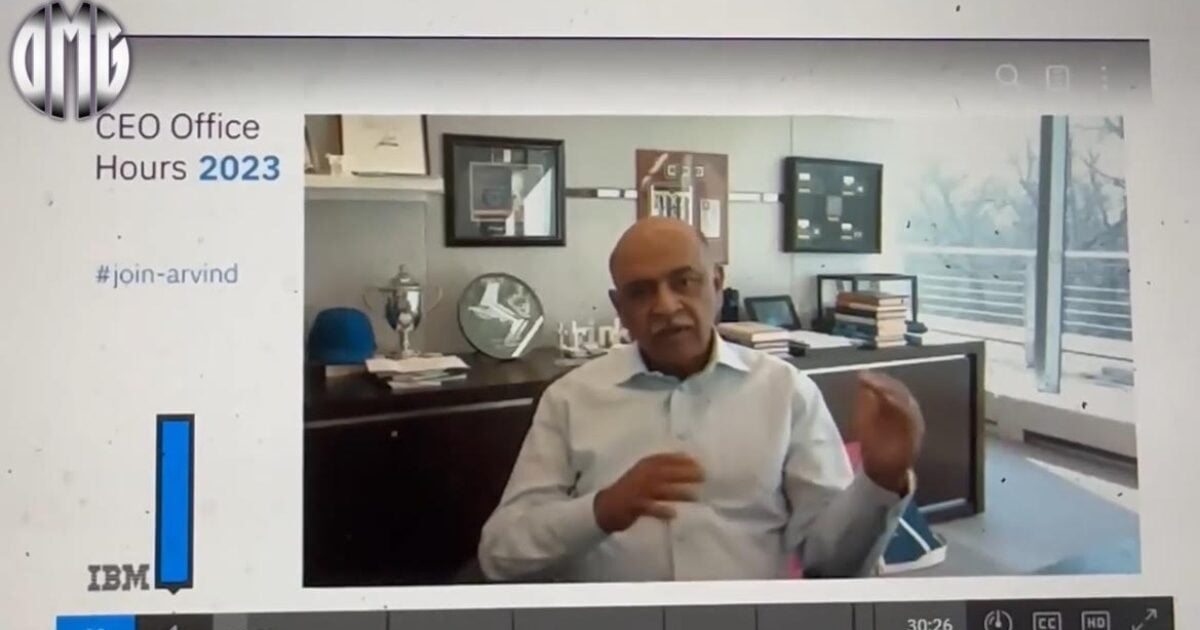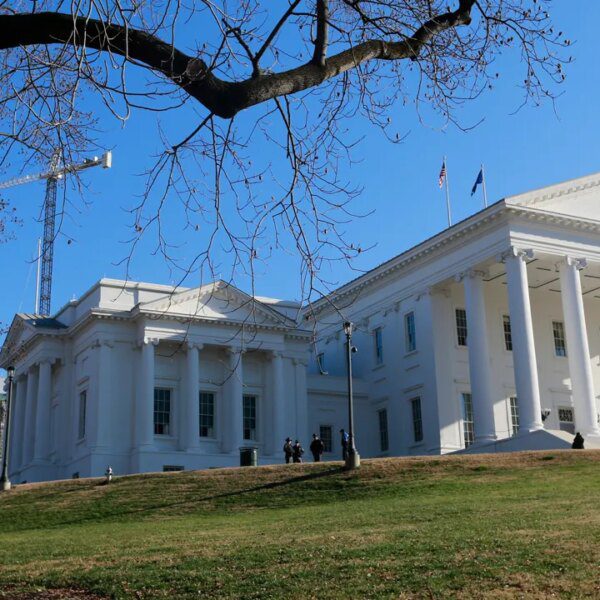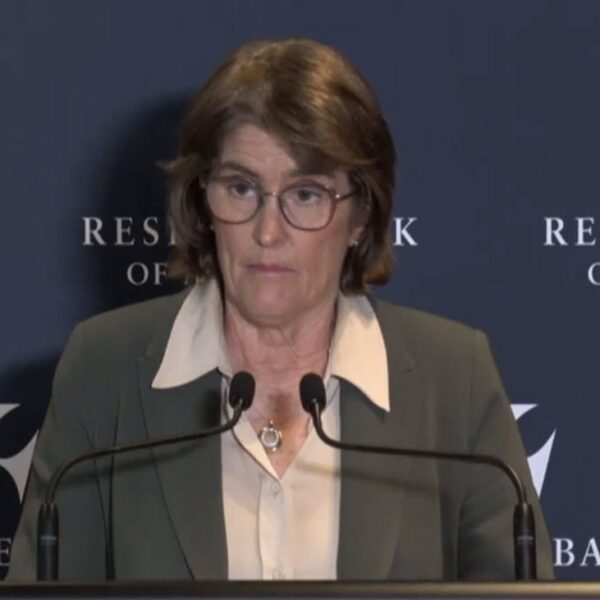
This story originally was published by Real Clear Wire
Just a few months ago, newly elected California GOP Chair Corrin Rankin was focused on upping her party’s game in the deep-blue state to make inroads in the 2026 midterms and prevent Democrats from forging a path to the House majority through her state.
Now Rankin is staring down the prospect of losing four to six Congressional GOP seats in one fell special-election swoop in early November. That’s when all the ballots will be counted in the special election California Gov. Gavin Newsom designed to gerrymander Republican House members out of their seats, decimating the current nine-seat California GOP delegation.
Language in the ballot initiative pledges that it will only redraw the lines temporarily, but opponents are more than skeptical that Democrats will relinquish that control once they have it.
The state’s nearly 6 million registered Republicans and the GOP House delegation are now looking to Rankin, along with several other state GOP leaders and billionaires, to stop Newsom’s power grab in his tracks and prevent the Republican bloodletting.
Clearly focused on a 2028 White House run, Newsom is trying to elevate his standing among his fellow Democrats by countering a brazen Texas mid-decade plan designed to help Republicans maintain their narrow majority in the House.
The Texas redistricting is an unabashed effort to insulate the House Republicans from losing majority control and prevent Trump from being impeached in 2027. In Texas, unlike California, however, pursuing these new congressional lines has the added benefit of complying with state law.
State law and previous voter-approved measures appear to be of little concern to Newsom. The governor, with the backing of several of the state’s largest unions, came up with a plan to “fight fire with fire” and further gerrymander California’s congressional maps and throw Republican representation into oblivion. In doing so, he convinced the super-majority Democratic-controlled state legislature to ignore the state Constitution language banning mid-decade redistricting to put the issue to voters in a special election, which is costing the state – already tens of billions of dollars in the red – $300 million.
Newsom’s Nov. 4 ballot initiative, known as Prop 50, would also wrest control of the map-drawing process from an independent Citizens’ Redistricting Commission and place it back in the hands of the Democratic state legislature – even though voters in California in 2008 and again in 2010 voted to de-politicize the issue by taking that power away from politicians.
“Two wrongs don’t make a right,” former California Gov. Arnold Schwarzenegger recently lectured, after previously calling Newsom’s gerrymander efforts “insane.” The aging former bodybuilder turned blockbuster Hollywood star led the effort to create the Citizen Redistricting Committee in his final years as governor and is vocally opposed to Newsom’s effort to dismantle it.
“Whatever happens in Texas, we cannot save democracy by destroying it in California,” Rev. Mac Shorty, a civil rights leader, who is also vehemently opposed, recently remarked.
Newsom, however, has money and the state’s political power brokers on his side. The California GOP, and other opposition forces, including Schwarzenegger, are being grossly outspent.
In just a matter of weeks, the Prop 50 referendum has become the second-most expensive ballot measure in California state history with both sides contributing more than $220 million so far in the intense, compressed high-stakes battle. Special elections are usually low-turnout affairs, and without a good GOP GOTV strategy, registered Democrats, who outnumber Republicans nearly two to one in California, would have a natural edge.
National and California teachers unions, along with the California Nurses’ Association, are pouring millions into the pro-gerrymandering side. And Newsom, eager to nationalize the issue into a drive to stand up to Trump, has enlisted Rep. Alexandra Ocasio-Cortez and Sen. Elizabeth Warren, two far-left progressives, to help sell the idea to California voters.
MoveOn.org, a liberal grassroots organization, cut a check for $6.9 million, while the House Majority PAC, a super PAC focused on electing Democrats to Congress, has added $10 million; and George Soros’ Fund for Policy Reform, which purportedly focuses on drug policy and electoral reforms, according to IRS filings, has ponied up another $10 million.
Opposing forces have managed to collect close to $83 million at last count, with the Congressional Leadership Fund, a super PAC controlled by Republican leaders in Congress, providing $10 million so far, and billionaire Charles Munger Jr., who backed the original ballot measure that created the independent redistricting commission, doling out another $33 million.
Thomas Siebel, a Bay Area businessman who is related to Newsom’s wife, Jennifer Siebel Newsom, donated $1 million, while former House Speaker Kevin McCarthy transferred another $1 million from his campaign account, far less than the $100 million he vowed to raise a few weeks ago.
Newsom’s decision to throw in with Soros, a Hungarian-American dual citizen and multi-billionaire who has donated billions to liberal dark-money causes, demonstrates his willingness to win at any cost even if it undermines recent attempts to moderate his image and reach out to right-wing figures on his podcast.
Rankin, the first black California GOP leader, who previously served as a national surrogate for Trump in 2016 and 2024, took over her father’s bail bond business that had operated for decades in Menlo Park since the late 1960s. And she’s no stranger to beating back deep-pocketed Soros-backed drives.
In 2014, a Soros-backed organization tried to abolish bail in California as part of a campaign to overhaul the state’s criminal justice system to a far more lenient approach. Rankin, as president of the California Bail Agents Association, teamed up with former prosecutor Harmeet Dhillon, who now serves as the assistant attorney general for civil rights at the Justice Department, to defend the state’s bail system when then-California Attorney General Kamala Harris bowed to Democratic pressure and declined to do so.
Though they lost their legal fight to protect many aspects of California’s cash bail system, Rankin’s grassroots organizational and advocacy efforts ultimately paid off when California voters in 2020 rejected Proposition 25, a ballot initiative that would have ended the state’s bail system for all but the most serious offenses. The bail system remains in place while court decisions, state laws, and local reforms have winnowed away at the practice.
During her time leading the Bail Agents Association, she launched its legal committee with Dhillon and also chaired the legislative committee and hired lobbyists to help wage the fight in the state Capitol. Although Rankin left the bail bonds business in 2017, she said the infrastructure she built there remains.
“I started it, and they carried it through, and ultimately [our side] prevailed,” Rankin, who previously served as the party’s vice chair and Central Valley Republican vice chair, told RealClearPolitics.
Similar to that bail-bond fight, the first attempts to block Newsom’s plan to redraw congressional districts failed. The California Supreme Court in late August rejected an attempt by Republican state lawmakers to temporarily block the redistricting efforts.
Rankin points to several legal scholars who believe the law is legally vulnerable even if voters approve it in November. (Laura Halgran, a retired San Diego Superior Court judge, has identified multiple legal issues with Proposition 50 and anticipates several constitutional challenges if the measure passes.)
Meanwhile, Steve Hilton, a GOP candidate for governor who was polling second behind Democrat Katie Porter before Porter’s embarrassing viral spat with a local CBS reporter, has filed suit against several officials involved in getting Prop 50 placed on the ballot. In early October, he asked for a preliminary injunction to try to halt the ballot initiative before the election concludes. U.S. District Judge Kenly Kiya Kato set the hearing for Nov. 6, two days after the election wraps up, although California’s all-mail-in system may delay ballot-counting past that date.
In Democrat-controlled California, Rankin knows she can’t rely on the courts as a backstop and must fight the ballot initiative with as big a funding arsenal as she can muster. Some Republicans across the state have privately griped about the California GOP’s decision to charge $30 per “No on Prop 50” yard sign as a way to raise some additional cash. But the real concern among the party faithful is a dearth of outreach to the GOP base so far – something Rankin vows to quickly change with a new infusion of cash from Republicans back in Washington.
Reliable Republicans who regularly turn out for elections haven’t been the primary focus for many groups opposed to Prop 50, including the Munger-funded Protect Voters First, which has reportedly aimed its messaging at the persuadables – independents and ambivalent Democrats. Stop Sacramento’s Power Grab, a group run by former California GOP Chair Jessica Millan Patterson, has also said it’s trying to drill down on “who we can persuade,” arguing that extreme gerrymandering is not a partisan but a good-government issue.
Rankin acknowledges that her new job has switched into high gear much faster than she anticipated, but says she’s up for the challenge.
“It’s unprecedented for any brand-new [party] chair to have this major proposition come within the first six months of their chairmanship,” she said. “But I believe we’re ready for it.”
Within her first weeks on the job, the Republicans across the state successfully beat back an effort by Democrats to exclude older teenagers from an existing law that increases penalties on people who solicit minors for sex. Ultimately, Newsom sided with Republicans on the issue, but only after the California GOP engaged in an aggressive and unprecedented social media campaign.
“We were able to do that right out of the gate, and we saw a lot of success in that,” Rankin said. “So, when Proposition 50 came along, we decided to use that same playbook.”
With voters receiving their mail-in ballots this week, Rankin is focused on waging a voter education and outreach battle. The party, she said, is committed to responding to a well-financed television and digital ad onslaught in favor of Prop 50 with her own October blitz of digital, direct mail, and expanded field work. Party officials also said they plan to provide extensive in-person canvassing, phone banking drives, and text messaging.
Meanwhile, county GOP initiatives are micro-targeting voters they need to turn out in order to win. Thirty-seven out of 58 of the state’s county sheriffs, including those from Orange, Riverside, and San Bernardino counties, last week announced they would oppose Prop 50. In addition, numerous GOP-controlled city councils across the state are locking arms to pass resolutions opposing Newsom’s gerrymandering plan.
Over the last week, the Congressional Leadership Fund helped the California GOP cause by donating $5 million to further those efforts, and House Speaker Mike Johnson’s American Renewal Leadership PAC contributed another $869,000 on Thursday. The funding follows Rankin’s commitment to spend up to $500,000 in existing party funds for targeted digital video ads.
The California Republican Party has rolled out a different video each day for the last two weeks on X.com starring Rankin; former San Diego Mayor Kevin Faulconer, who chairs the party’s fundraising efforts; and former Congresswoman Michelle Steel, who narrowly lost her seat to Derek Tran in Orange County last year.
“Californians have already voted twice to keep redistricting with the people, not Sacramento insiders,” Rankin said. “Prop 50 tried to take that back. It’s a power grab, plain and simple. It says one thing and does another. Our October blitz is about cutting through the noise with daily videos and targeted outreach, so voters get the facts and vote no.”
A spate of recent polls indicates that supporters of Proposition 50 are gaining ground. In mid-August, a Politico-Citrin-Center-Possibility Lab survey found that just 36% of respondents backed returning congressional redistricting authority to California lawmakers. But early this week, a survey from the firm co/efficient found that a majority of California voters now back Proposition 50.
But the poll showed some serious cracks in the idea of re-politicizing the map-making process. Only 12% said they trust the legislature most to redistrict while 35% said they trust the existing commission the most.
Opponents of Prop 50 also point to the same poll’s findings that 49% of California voters have yet to commit to a “yes” or “no” position on the initiative, underscoring the importance of late voter contact.
That’s a bit of good news for nervous Republicans worried that the opposition message has yet to penetrate while voters are getting hit with a barrage of union and Soros-funded ads.
“The California Republican Party is putting these dollars to work where they matter most: persuading undecided voters and turning out our supporters,” said Shawn Steel, chairman of the party’s Redistricting Committee, who has helped lead the recent fundraising push. “This October blitz is about clarity and reach. Californians deserve a clear explanation of what Prop. 50 would do to their voice in government, and they’re going to hear it from us, one conversation, one ad, and one door knock at a time.”
For Rankin, the crux of the issue is Democrats’ willingness to throw out the citizen-led redistricting commission and California constitutional law preventing the redrawing of congressional lines mid-decade just to oppose Trump at the national level.
“California voters overwhelmingly voted in 2010 for an independent, citizen-led redistricting commission to redraw the maps every 10 years, following the census,” Rankin said. “And when we start giving up our constitutional laws and protections, they start falling by the wayside, little by little.”
“You give up one, then you’re asked to give up another, and then another and another,” Rankin added. “I stand firmly in the belief that we’ve earned every single one of our constitutional laws and rights, and we should be fighting to protect every one of them.”
Rankin also pointed out Democrats’ selective citing of the Voting Rights Act, making minority-rights arguments to oppose gerrymandering efforts in Texas while ignoring those same principles in California’s drive.
“You can’t say, ‘I respect your rights, but I’m going to take them away temporarily. But don’t worry, you’re going to get them back later,’” Rankin asserted. “That’s not the way it works. It’s blatant hypocrisy.”
This article was originally published by RealClearPolitics and made available via RealClearWire.
Susan Crabtree is RealClearPolitics’ national political correspondent.















